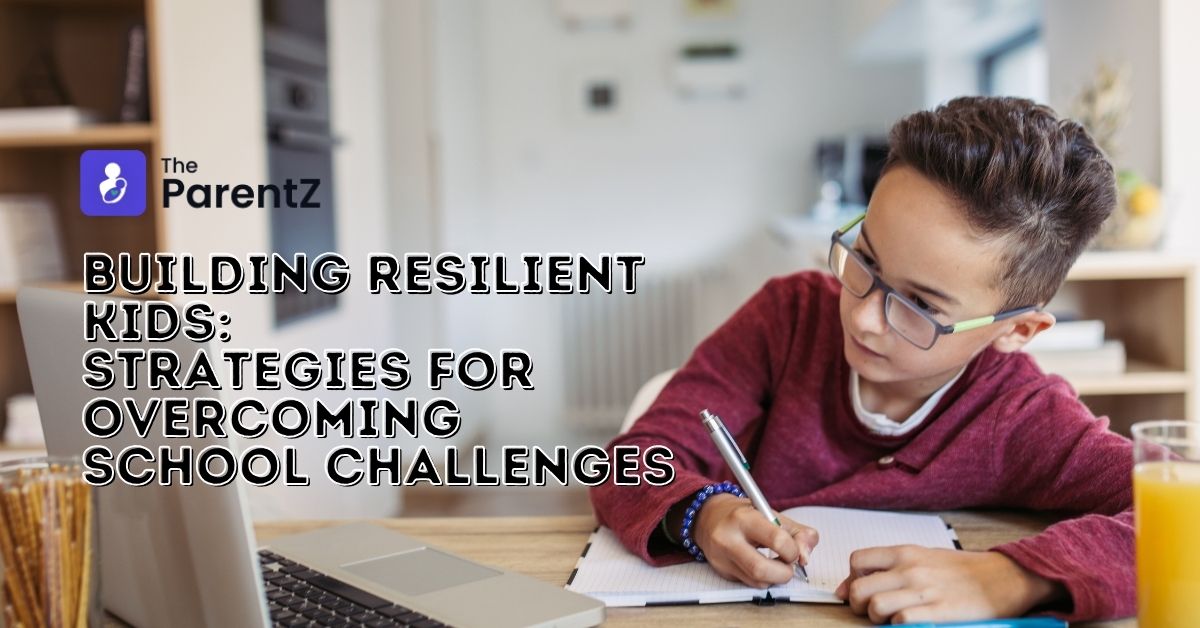There are several moments in your kid’s life full of failures and stressful situations. Bouncing back from such challenges requires resilience that helps your kid navigate through all these ups and downs. Parents play an effective role in building resilience in children so that they can explore every situation with confidence. Whether it’s scoring low marks in a school exam, getting bullied, or losing friends, teaching your kids to go beyond their comfort zones and face the negative circumstances single-handedly will prepare them for the long run.
When it comes to developing resilience, it goes beyond developing problem-solving skills and encompasses developing social and coping skills, building connections, learning from their past mistakes, and trusting their intuition.
Read below this article to learn how you can develop resilience in your kids so that they can overcome every stressful challenge at school with confidence.
5 Ways to Build Resilience in Children
Making your kids develop the ability to be resilient can be a time-consuming task for every parent. However, with the right approach and the right strategy, teaching kids resilience can be made simple. Explore some of the most effective ways you can develop the skills of resilience in your kids to handle every challenge at school.
Build a strong connection.
‘Children are like clay who need a sculptor,’ this saying is an absolute truth. Thus, during childhood, it becomes important for every parent to build a strong connection with their little ones. This will not only make them realize that you are his biggest supporters but are also there for them in any situation. Thus, they will feel motivated, and a pure connection will also inculcate in them a healthy risk-taking mindset to step outside their comfort zones.
Embrace failures and learn from mistakes
Making mistakes and failing are part of every successful journey. What is important is to learn from your failures and to keep trying to accomplish your goals. As parents, it is your responsibility to keep them encouraged so that they are not afraid of trying again and again. Overall, teaching your kids to try new things and learn from past mistakes is yet another significant way to develop resilience in children.
Teaching them to understand feelings
Accepting the emotional low phase is an important aspect of learning coping skills and how to deal calmly in stressful situations. Teach your child that emotions such as sadness, anger, dejection, homesickness, or distress are normal. Furthermore, make them realize that such negative situations are just a part of life and that there’s happiness and joy along the way.
Establish a productive daily routine
Establishing a daily routine is another significant approach to building resilience in children. Not only will it help to make them more productive, but it will also develop consistency in them. Help them create a schedule that includes specific time for completing school assignments, studying, eating healthy meals, sleeping, hobbies, and entertainment. Don’t forget to mention family time in your kid’s schedule.
Promote self-care
Last but not least, embracing self-care is an undeniable step towards developing confidence and motivation in kids. This way, they will take out their time to improve and pamper themselves, including exercising, pursuing their hobbies, maintaining a healthy hygiene routine, and eating a well-balanced diet. And it has been reported that kids who believe in self-care tend to handle difficult situations with resilience.
In conclusion, building resilience in kids is a process that takes a lot of time and patience. And if you haven’t started yet, it is never too late to make an effort to develop such skills in your kids. In the above article, we have provided some of the most helpful tips that can make your journey easier.





Be the first one to comment on this story.